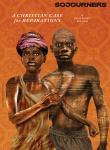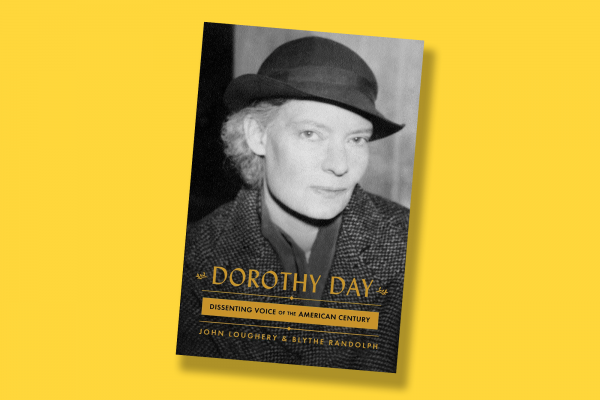JOHN LOUGHERY AND Blythe Randolph have written a compelling and complete biography of a complex woman who may be the next American saint—and written it with a vibrant, personal voice. They place Catholic Worker co-founder Dorothy Day’s life in historical context, something the small circle of the Catholic Left I inhabit sometimes doesn’t see, which makes this book different than others about her. It inserts her life squarely into the times in which she lived and shows how her fidelity to the gospel as a journalist, activist, and Christian anarchist put her at odds with both church and state. It also shows how she persisted, becoming more and more herself as she aged.
Loughery and Randolph describe Day’s childhood in Brooklyn, N.Y., Oakland, Calif., and finally Chicago; her recognition of an affinity with socialism and pacifism while at the University of Illinois; the men and women she worked and drank with during her young days in Greenwich Village; and her first arrest—as a suffragist.
They give details of her affair with Lionel Moise and tragic, brutal abortion at the hands of Ben Retiman. They speak of her only novel, The Eleventh Virgin, her brief marriage to Berkeley Tobey, her finding love and happiness with Forster Batterham, and the birth of her daughter Tamar, an event that brought her to Catholicism but forced her to leave Batterham. They describe a reporting trip to cover a Washington, D.C., protest, during which she prayed that God would send her a way to reconcile Catholicism with her pacifism and socialism, and her eventful meeting with Peter Maurin. That meeting, and the graced if sometimes fraught collaboration that resulted, confirmed how closely her original understandings resonated with the teachings of the New Testament and the encyclicals of several popes.
Day and Maurin published the first Catholic Worker newspaper on May Day 1933, and the resulting Catholic Worker movement spread across the country and throughout the world. This book explores the growth in Day’s spirituality as she lived out her lifelong commitment to the poor and pacifism during the Spanish Civil War, the World War II era, and the Vietnam times, when her leadership was confirmed by the young people who came to her for support and strength in resisting the draft.
Loughery and Randolph’s extensive research may have allowed an occasional error to creep into their manuscript, including acknowledging me as “the late Rosalie Riegle Troester,” but their tremendous work has borne substantial and worthwhile fruit. Dorothy Day: Dissenting Voice of the American Century shows that even as she became an icon of the Left, Day remained intensely human. The paradoxes of a sensitive woman called to be a dissenting voice in a world that largely ignores gospel teachings deserve wide reading, informed discussion, and generous sharing.

Got something to say about what you're reading? We value your feedback!







